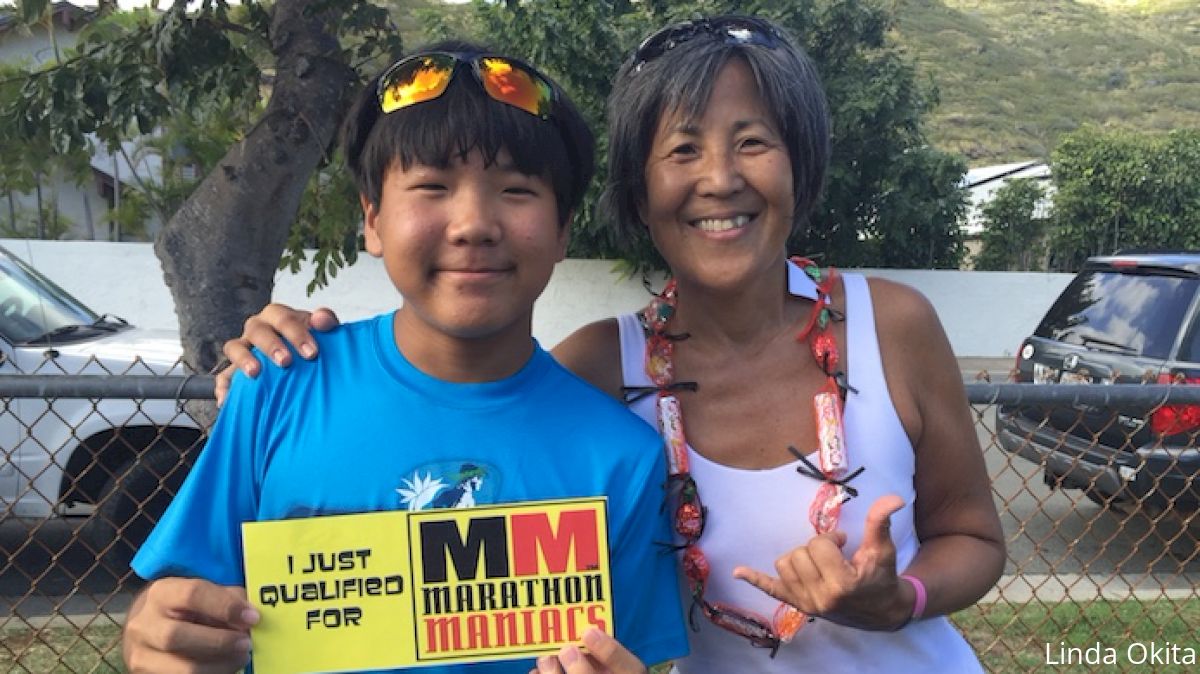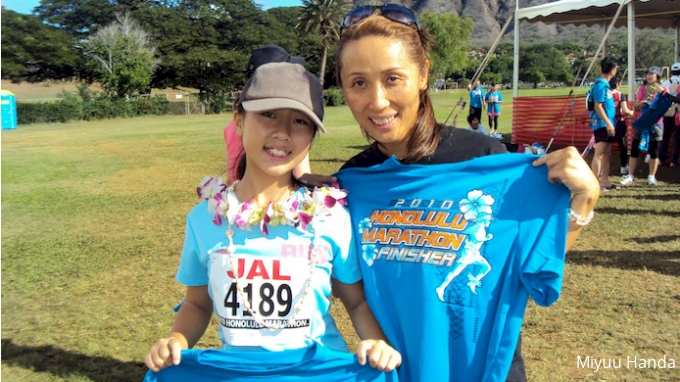In Hawaii, Running Community Fights Bill To Ban Teens From Marathons
In Hawaii, Running Community Fights Bill To Ban Teens From Marathons
If passed, Proposed Measure SB2413 would ban teens under the age of 18 from competing in half marathons or full marathons

Update, 7:37 p.m. Hawaii time: Nate Carlson confirmed via text that the bill is dead. "We just defeated the Senate Bill!!! Gabe and Miyuu gave testimony and they were eloquent and well spoken. So proud of the Hawaii kids... the thousands of written testimonies and petitioning told them enough and [they] were going to kill it on the spot. Victory for runners!"
There aren't many teenagers who compete in marathons, and in Hawaii, there may be even fewer very soon.
Hawaiian Senator Will Espero introduced a proposed measure in late January, SB 2413, to ban teens under the age of 18 from registering and competing in half marathon and full marathon races on the island.
Naturally, the state's distance runners aren't going to let this pass without a fight — though a final decision could be made today.
A senate hearing is scheduled for this afternoon at 3:45 PM in Honolulu, where lawmakers will hear testimony on this bill as well as 21 other proposed measures; SB2413 is slotted last. If time allows, they will vote.
One of the proposed measure's biggest critics is Nate Carlson, a physical therapist and board-certified orthopedic specialist who also happens to be an avid runner, former NCAA Division II All-American, and high school coach.
Carlson won't be able to speak at the hearing this afternoon, as he will be coaching Castle High School's first track practice of the season, but he did contribute a lengthy testimony for the legislature's consideration that refutes the bill's claims that distance running is dangerous for children.
As evidence, the bill references an unattributed article from the Journal of Athletic Training that says, "Children do not absorb the impact of running as well as adults and less absorption can... result in overuse injuries." The evidence also cites an undated advisory from the International Marathon Medical Directors Association (IMMDA), which says, "It is in the overall best interests of our children to make competitive participation in a full marathon an adult activity, reserved only for those 18 years of age and above."
While it is unclear exactly what article the bill is referencing, as there is no publish date or author name included in the text, Carlson's own research and medical background leads him to believe that Espero's bill is referencing limited studies from the 1990s. The IMMDA advisory was issued based on studies from the 1970s and '80s.
Medical research and findings can certainly shift significantly in a time span of 40 years. There is currently no definitive medical recommendation for or against children's participation in marathons and other long-distance ventures.
Even the American Academy of Pediatrics' Council on Sports Medicine and Fitness, which the bill actually cites as evidence to support the ban, does not set age parameters for participation in distance races and, instead, suggests that an adult supervise training.
Dr. William O. Roberts conducted one of the most in-depth studies on this topic, pulling data on runners younger than 18 years old who ran the Twin Cities Marathon from 1982 through 2007. Of 310 youth runners to finish the marathon in that period, only four required services of the medical tent, making the "medical encounter rate... half that of the adults" in the field. While Roberts would not recommend marathon running for most minors, he does not think there is enough science to support banning all minors from these events.
The bill itself also does not define "long-distance running." The definition section reads:
"'Long distance running event' means an event that requires an individual to register as a participant and to run a distance greater than or equal to ___ miles."
Sixteen-year-old Gabriel Tom is worried that the bill could include not only marathons and half-marathons but 10K races as well. He recently trained with Carlson for a few months in addition to his regular practices with Kaiser High School to prepare for the Xterra Trail Half Marathon.
Tom has already raced six marathons and completed his first at 12 years old. No one in his family was a runner, but he was inspired to become one after watching the Honolulu Marathon.
"The course runs along urban communities, so you walk outside and see the runners and it's really inspiring," he said. "I was like, 'I want to do that,' so I set a goal and aimed to do it."
His mom, Linda Okita, ran her first marathon because Tom needed a parent on the course with him since he was so young.
He remembers watching the race as a 4-year-old, but Okita made him wait until he was 12 to do it himself. He joined a local training group where he was able to train with adults who monitored his workouts and mileage.
Tom set a personal best at this past December's Honolulu Marathon, a 3:14:47 — "I wanted a 3:08 but the marathon is unpredictable in the end." Still, he's improved a lot from his first go-round, 4:29 as a 12-year-old.

Miyuu Handa and her mother at the 2010 Honolulu Marathon. Photo courtesy of Miyuu Handa.
Miyuu Handa, a senior at Kalaheo High School, is another prolific child distance runner in Hawaii who trains with Carlson. She completed her first marathon at age 10.
"It took me nine hours the first year," she remembers. "I chose points on the course and I would run and then walk and then I'd tell myself to run again."
She has raced the Honolulu Marathon every year since then, setting a PB of 3:54 this past December, except for 2014, when she had a stress fracture on top of her foot.
Handa says she only runs about 20 miles per week and she doesn't attribute the injury to overtraining, wondering instead if it was due to tying her shoes too tight or wearing a specific type of running shoe that didn't mesh with her gait.
Tom says he puts in 60 to 70 miles per week of mostly easy running, but Handa is more low-key about her training. She says her longest run is probably eight or nine miles and only does longer distance races outside of the school track and cross country seasons.
She enjoyed running as a child because it was a physical activity she could do by herself. Handa is the child of a single mother who didn't have time to drop her off at regular sports practices every day. She got the idea of running a marathon from her mom, who likes to enter distance races on the weekends.
Handa will attend the Naval Academy next year, where she hopes to join the marathon club.
"If I didn't turn 18 this year, I'd be pretty mad," she says. "I've been doing pretty good in my long distance runs. In the Kaui Run, I've gotten first in my age group. There are age groups that involve less than 18-year-olds.
"My P.E. teacher's son is 10 right now and they're gonna run the Honolulu Marathon together. He asked me about running it [as a 10-year-old] and I said it's not that bad. If this happens, that kid won't be able to run it. It's better to experience things like this earlier and build on it so you can get better and better as you go. I've improved every single year and that's because I had that first start."